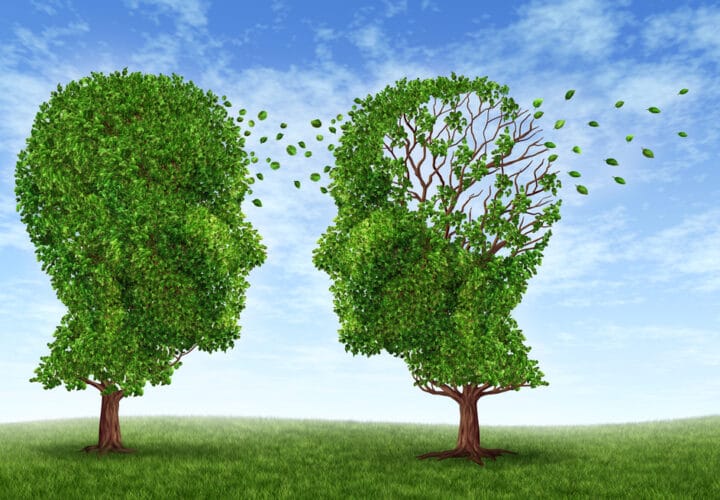Loneliness increases risk of dementia by up to 40% — but what does it mean to feel lonely?
A new study has calculated the toll loneliness takes on the brain: People who experience feelings of loneliness are at a 40 percent chance higher risk of developing dementia in their later years.
The study, conducted by researchers at Florida State University, looked at 12,030 people over the course of 10 years. They gave participants, all ages 50 and over, a cognitive test at the start of the study, then every two years for up to 10 years after. They also recorded data on self-reported levels of loneliness and isolation. After 10 years, 1,104 of the participants were diagnosed with dementia.
The study echoes earlier findings from a Dutch study that showed lonely people were at a 64 percent higher risk of dementia.
But what does it mean to be lonely? Both studies stress that loneliness doesn’t mean simply living alone. The most recent study defined it as “the subjective experience of social isolation,” a distinction from someone who simply spends much of their time alone.
“It’s a feeling that you do not fit in or do not belong with the people around you,” said Angelina Sutin, the principal investigator on the study, in a statement released by FSU. “You can have somebody who lives alone, who doesn’t have very much contact with people, but has enough—and that fills their internal need for socializing. So even though objectively you might think that person is socially isolated, they don’t feel lonely. The flip side is that you can be around a lot of people and be socially engaged and interactive and still feel like you don’t belong. From the outside it looks like you have great social engagement, but the subjective feeling is that you’re not part of the group.”
The study findings match other evidence that show things marriage and close friendships could help preserve brain health. A sense of purpose after retirement was also associated with slower overall aging and better measures of health.
But these studies are all based on correlations, meaning that a direct line of cause and effect cannot be drawn between loneliness, marriage, close friendships or a strong sense of purpose and dementia.
Doctors still don’t know exactly what might trigger dementia in the brain, but most agree that it’s a combination of genetic and lifestyle factors. The good news: Some of those factors, like loneliness, can be modified. In fact, people in the study who reported greater levels of loneliness also were more likely to have other risk factors for dementia—things like diabetes, hypertension and depression. They were more likely to smoke and less likely to be in shape. Even controlling for all those factors, loneliness still predicted a greater risk of dementia. But the one thing that all of these factors have in common? They’re mostly modifiable.
While feelings of loneliness are not something people should be shamed for, it is a sign that basic social needs are not being met.
“Loneliness is a modifiable risk factor,” said Sutin. “Most people might describe periods where they felt lonely and then periods where they didn’t feel lonely. So just because you feel lonely now, you don’t always have to feel this way.”


